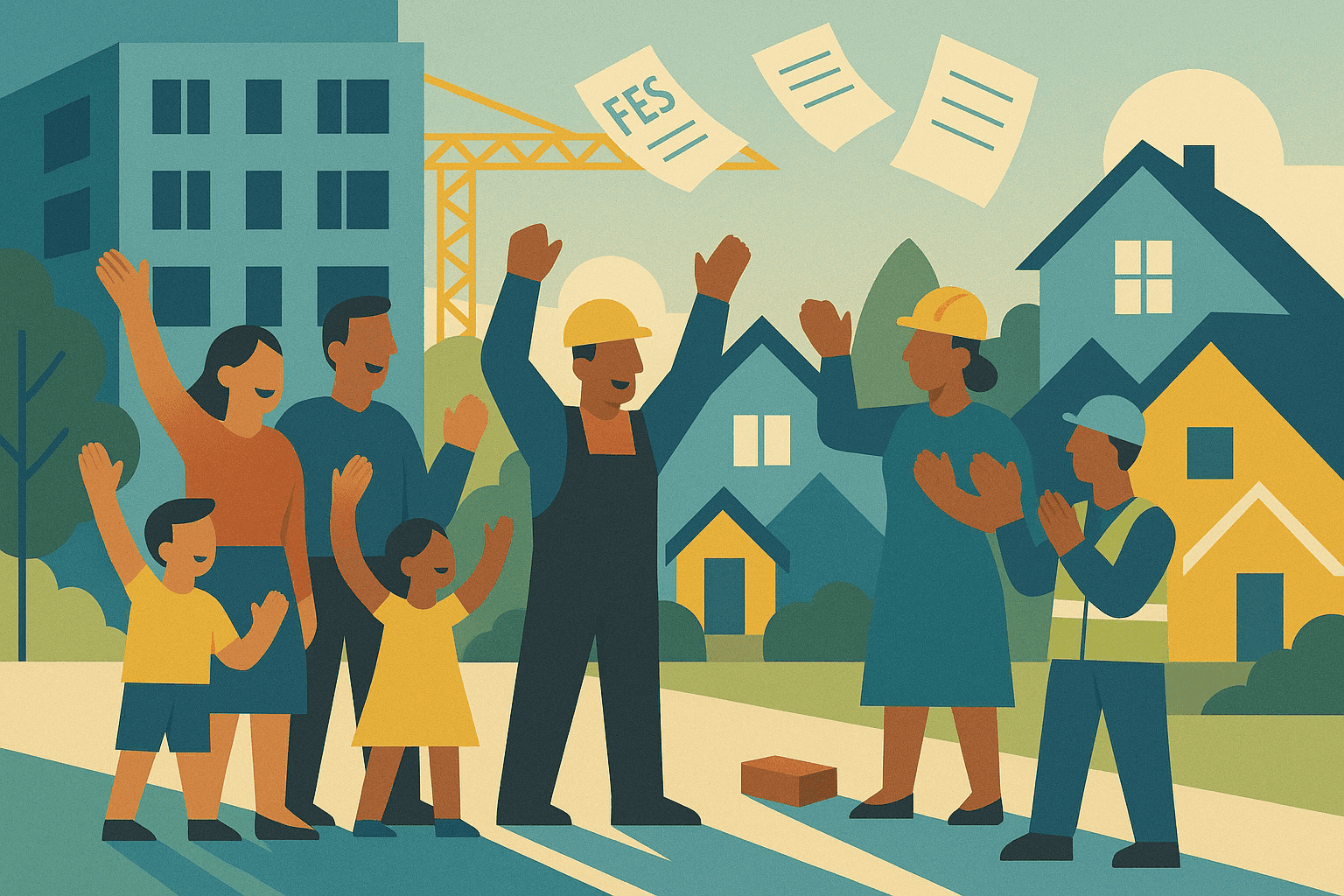Supervisor Mahmood Proposes Housing Fee Reform
September 11, 2025
Supervisor Mahmood aims to ease financial risks of new home development by deferring impact fees until after construction is complete.

The Facts
Supervisor Bilal Mahmood, whom we endorsed for election in November 2024, has made a move to lower the financial risks of new home building. Today, home builders must pay tens-to-hundreds of thousands of dollars in "impact fees" before they even start construction, and Mahmood's proposal moves payment of those fees until after the building is complete and certified for occupancy.
The ordinance, introduced on June 10, 2025, and originally scheduled for a Planning Commission hearing on September 11, brings San Francisco into compliance with state law while reducing significant financial risk for housing developers.
The Planning Department recommends approval, noting the change provides "greater flexibility for housing developers and helps reduce financial and administrative burdens."
The Context
The proposal responds to state housing law Senate Bill 937, which took effect on January 1, 2025. San Francisco's impact fees can be substantial—the city's analysis found fees can add $70,000 to $90,000 to projects, and research shows California's municipal fees are 10 to 40 times higher than in states like Texas. Seattle does not charge any impact fees, highlighting how unusually burdensome San Francisco's fees are compared to other major West Coast cities.
Under the current rules, developers risk losing hundreds of thousands of dollars if projects fail after paying fees upfront but before completion. The new system reduces this risk by aligning fee payment with project success. This reform comes as San Francisco struggles with housing production, with construction crashing 70% since 2020 despite the urgent need to permit 82,000 new homes by 2031.
The GrowSF Take
We're beyond pleased to see Supervisor Mahmood taking concrete steps to reduce barriers to new housing. Mahmood is a wonderful departure from his anti-housing predecessor and is proving to be a pragmatic leader who understands that San Francisco's housing crisis demands practical solutions, not ideological posturing.
This smart reform removes an unnecessary financial barrier that discourages new housing. By reducing upfront risk, it makes projects more viable, especially for smaller developers who cannot absorb the loss of paying fees on a project that fails.
Generate a Personalized Email to the Board of Supervisors
To:
Sign up for the GrowSF Report
Our weekly roundup of news & Insights